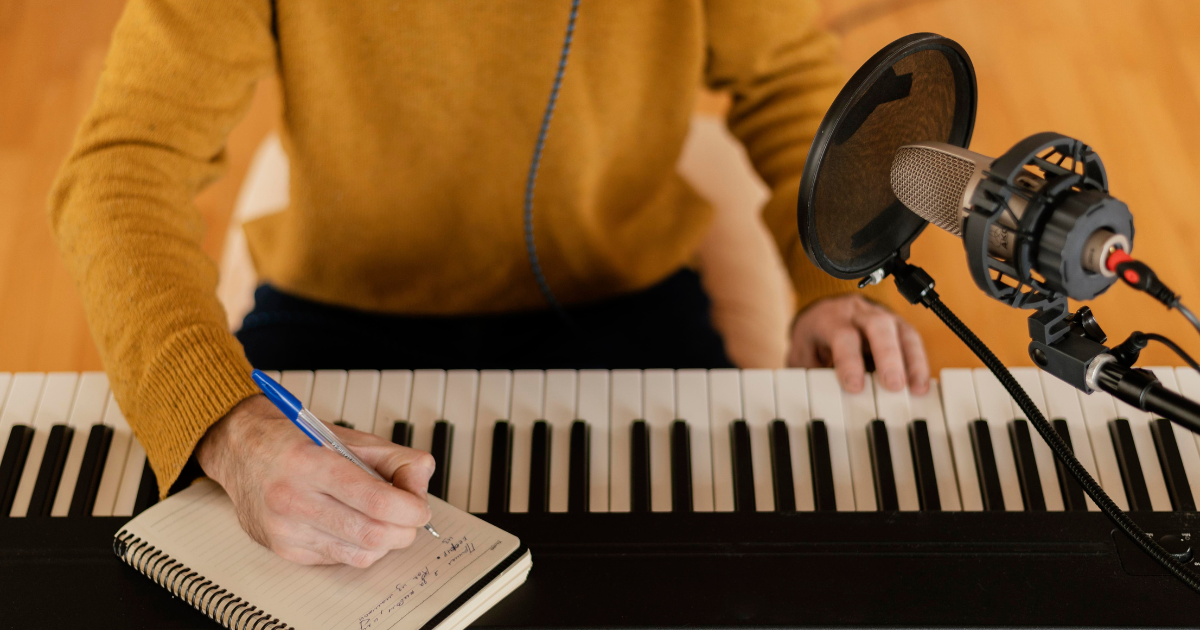El miedo escénico es un sentimiento común a todos los pianistas, tanto principiantes como profesionales, cuando actúan en público. Sin embargo, a veces puede ser difícil de controlar y afectar a la calidad de la actuación. En este artículo te damos algunos consejos para superar el miedo escénico en un concierto de piano.
1. Preparación mental
Meditación y visualización
Para empezar, cierra los ojos y concéntrate en tu respiración: respira lenta y profundamente unas cuantas veces, visualizando el aire entrando y saliendo de tu cuerpo.
A continuación, centra tu atención en tu cuerpo: toma nota de cualquier sensación física que sientas, como la tensión en los hombros o el tacto de los pies en el suelo. Intenta liberar cualquier tensión que puedas sentir.
Por último, visualízate tocando el piano ante un público atento y receptivo. Imagínate tocando con confianza y seguridad en ti mismo, y visualízate recibiendo un caluroso aplauso al final de tu actuación.
Los ejercicios de meditación y visualización te ayudarán a prepararte mentalmente y a reforzar tu confianza antes de la actuación.
Afirmaciones positivas
Decirse afirmaciones positivas a uno mismo antes de un concierto de piano puede ayudar a reducir el estrés y la ansiedad, y a mejorar la confianza en uno mismo. Aquí tienes algunos ejemplos de afirmaciones positivas que puedes decirte a ti mismo antes de un concierto de piano:
- Soy una pianista talentosa y apasionada, y he trabajado mucho para llegar a este nivel.
- Confío en mis habilidades y en mi capacidad para ofrecer una actuación increíble.
- Estoy listo para compartir mi música con el público y ofrecerle una experiencia inolvidable.
- Soy capaz de gestionar mis emociones y concentrarme en mi música, incluso en situaciones de estrés.
2. Preparación física
Calentamiento
Antes de jugar, calienta para evitar lesiones y entrar en ambiente. Estira y flexiona los dedos y gira, presiona y relaja las muñecas. Por último, toca algunas notas para entrar en ambiente.
Recuerda que debes empezar despacio y aumentar gradualmente la intensidad del calentamiento. Si sientes dolor o una tensión excesiva, para inmediatamente y consulta a un profesional de la salud.
Respiración
La respiración es una poderosa herramienta para calmar los nervios. Antes de subir al escenario, respire profundamente para relajarse.
La respiración profunda es una técnica respiratoria que consiste en una inhalación lenta y profunda, seguida de una exhalación lenta y controlada. Esta técnica respiratoria puede ayudar a reducir el estrés y la ansiedad, mejorar la circulación sanguínea, aumentar la oxigenación de los tejidos y mejorar la función pulmonar.
La respiración profunda debe practicarse con regularidad, preferiblemente todos los días durante unos minutos, para obtener sus máximos beneficios.
Hidratación y nutrición
Es muy importante mantenerse bien hidratado y comer bien antes de un concierto de piano, ya que esto puede afectar a tus niveles de energía y concentración durante la actuación.
En cuanto a la hidratación, bebe suficiente agua durante todo el día previo al concierto. Evita tomar demasiada cafeína o alcohol, ya que pueden deshidratarte.
En cuanto a la dieta, es importante comer alimentos sanos y equilibrados para mantener los niveles de energía y concentración durante la actuación. Evita los alimentos pesados o grasos que puedan producir somnolencia, y prefiere los alimentos ricos en proteínas y carbohidratos complejos unas horas antes de la actuación.
3. Gestión del miedo escénico
Establecer contacto visual
Mantener el contacto visual con el público durante una interpretación de piano es importante por varias razones. En primer lugar, puede ayudar a crear una conexión emocional con el público, mostrando que estás presente y comprometido con tu interpretación. También puede ayudar a mantener la atención del público y despertar su interés por la música.
Para establecer contacto visual con el público durante una interpretación de piano, es importante recordar mantener la cabeza alta y sonreír de vez en cuando. No dudes en mirar a distintos miembros del público para establecer una conexión con ellos.
Concéntrate en la música
Los nervios pueden dominarle fácilmente y alterar su concentración, lo que puede afectar negativamente a la calidad de su actuación. Concéntrese en la música y no en los nervios. Déjese llevar por la belleza de la música y la emoción que evoca. Así disfrutará más de la actuación y el público disfrutará más de la música.
Tómate tu tiempo
Tomarse su tiempo sobre el escenario en un concierto de piano puede ser beneficioso por varias razones. En primer lugar, te permite controlar mejor el ritmo y la intensidad de la música. Al tomarte tu tiempo, puedes expresar mejor la emoción y la profundidad de cada nota, lo que puede captar la atención del público y crear una experiencia más envolvente. Además, te permite concentrarte en tu interpretación y minimizar los errores.
Para tomarse su tiempo en el escenario, puede utilizar técnicas como pausas prolongadas entre piezas, variaciones de tempo y matices dinámicos.
Conclusión
El miedo escénico es un sentimiento normal, común a todos los pianistas. Sin embargo, si sigue estos consejos, podrá superar el miedo escénico y concentrarse en la música y en su interpretación. No olvides que lo más importante es disfrutar tocando y compartir tu pasión con el público.
Descubra la historia de Anthony, que, precisamente porque ya no disfrutaba tocando el piano a causa de descifrar partituras, inventó su propio producto para redescubrir la alegría de tocar, pero esta vez con luces.




Deja un comentario
Todos los comentarios se moderan antes de ser publicados.
Este sitio está protegido por hCaptcha y se aplican la Política de privacidad y las Condiciones de servicio de hCaptcha.